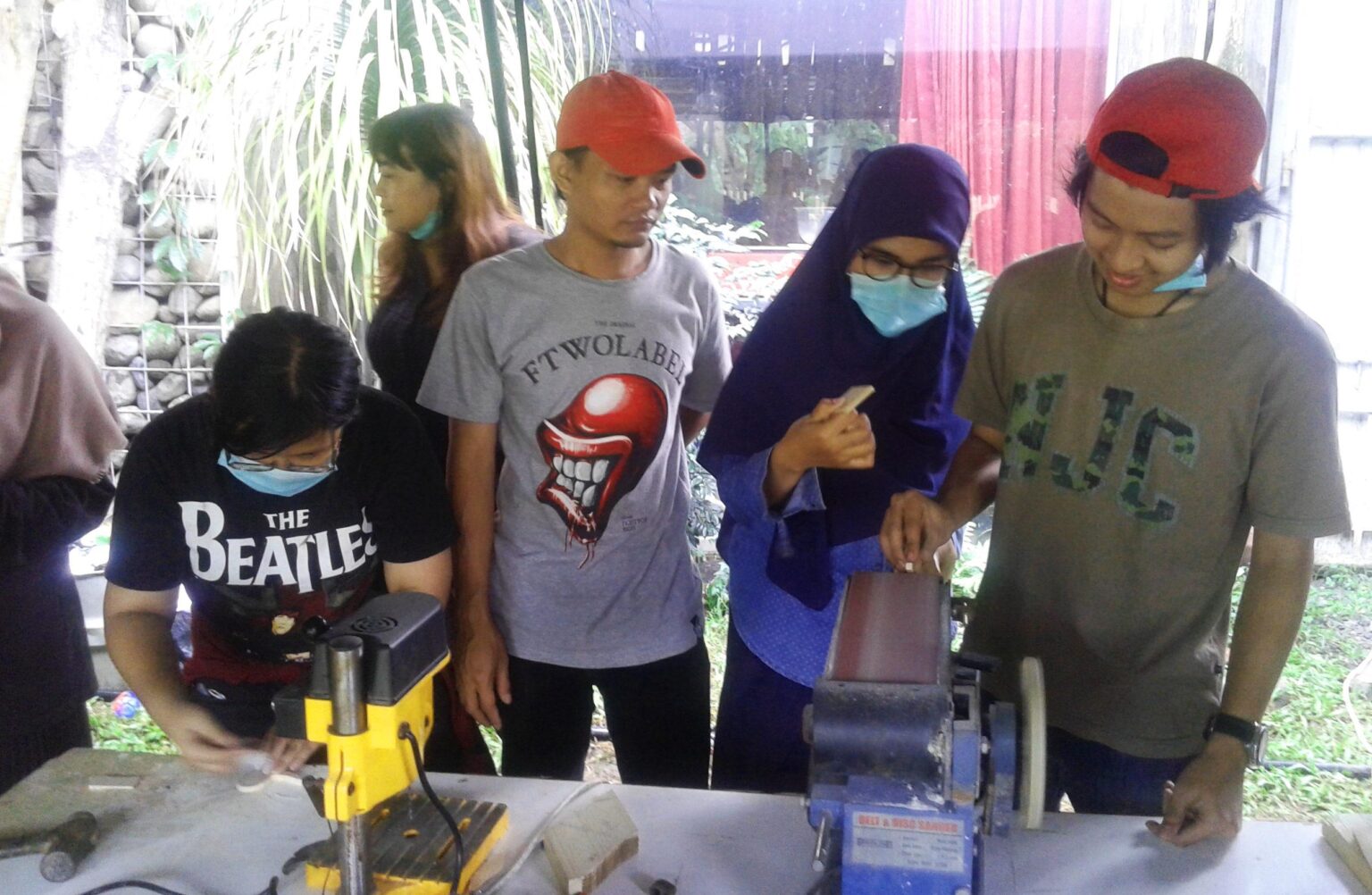Responsible contract manufacturing

Iglumi Oy offers contract manufacturing to companies that sell textile products and manufactures the products responsibly in Indonesia. The greatest challenge is to get buyers to consider other factors than price.
Very few of the textile products sold in Finnish stores are made in Finland. Instead, they are produced by contract manufacturers in countries with lower manufacturing costs.
Penni Parviainen, who has extensive work experience in the designer product market and heads Iglumi Oy, offers Finnish companies the manufacture of products in Indonesia in a manner where employee rights are respected and other responsible business practice principles are honoured. Parviainen says that the link to Indonesia was created by coincidence. The experienced professional had sold his designer product store in Helsinki a few years earlier and did not want to retire and started developing a new business idea.
His cooperation partner became Adhi Nugraha, who earned his PhD in Arts in Finland and Parvianen had sold bags designed by Nugraha in his store. Nugraha had founded the company Navetta Creatives in Indonesia and they were seeking customers for the products it manufactured.
“The staff needed to first be trained for manufacturing the products”, says Parviainen.
The support from Finnpartnership made training possible
Parviainen knew of Finnpartnership’s Business Partnership Support and Iglumi Oy submitted an application for funding for training the partner company’s employees in Indonesia. “Facilitating the course that lasted two months would not have been possible without the financial support from Finnpartnership”, says Parviainen.
The textile production takes place in Lembang, which is a small city on the island of Java near Bandung. Jobs are difficult to find there, so there was a lot of interest in the new company.
“There number of applicants for the training course was tremendous. The greatest challenge was selecting the right people for the training.” According to Parviainen, the family background of the applicant was also a factor. “We wanted to include youth, as the wages paid for their work is especially significant to their families. Money does not only benefit the employee, as in practice, it creates well-being for the entire family.”
According to Parviainen, Navetta Creatives pays wages that are approximately ten per cent above the prevailing wages. The company has also organised healthcare for its employees, which is rare in Indonesia.
“The underlying principle is that employee matters are handled well and good Finnish work practices are exported to Indonesia”, Parviainen notes.
The demand for products is rapidly growing
Sixteen local youth participated in the first training programme organised in 2016. Most of the attendees were young women. They studied, for example, how to make bags and rugs under the leadership of Päivi Punamäki, who has a Diploma in Crafts and Design.
“All course participants were employed and have remained as employees at Navetta Creatives.”
Navetta Creatives has not yet received orders from Finland, but they have started exporting to the United States, for example. “Orders could not have been accepted without trained employees, so the timing of the course was ideal.”
The demand for Navetta Creatives products has steadily increased, so the company has decided to add more employees. A new course will be held in 2018 and will facilitate the training of 15-20 people. “We are applying for support from Finnpartnership for organising this course as well.”
It is good to research the subcontractor
In Finland, Parviainen has been in contact with several companies that sell textile products and has “several lines in the water”, as he puts it. He feels that the greatest challenge is the narrow approach exercised by buyers where product pricing is the most important factor.
“Products may be ordered as a result of contacts obtained randomly from trade fairs. However, the effort is not made to research the manufacturers.”
In recent years, the international chains that manufacture clothes, for example, have had to revise their operating procedures, as the production facilities used by subcontractors have had poor working conditions or have used child labour.
Parviainen feels the company is assuming high risk, if it does not research its subcontractors. “Especially for companies operating in the consumer market, the loss of a company’s reputation may even prove detrimental. This should also be considered by Finnish companies when they order products from developing countries. A change in attitudes is needed.”
Share on social media


